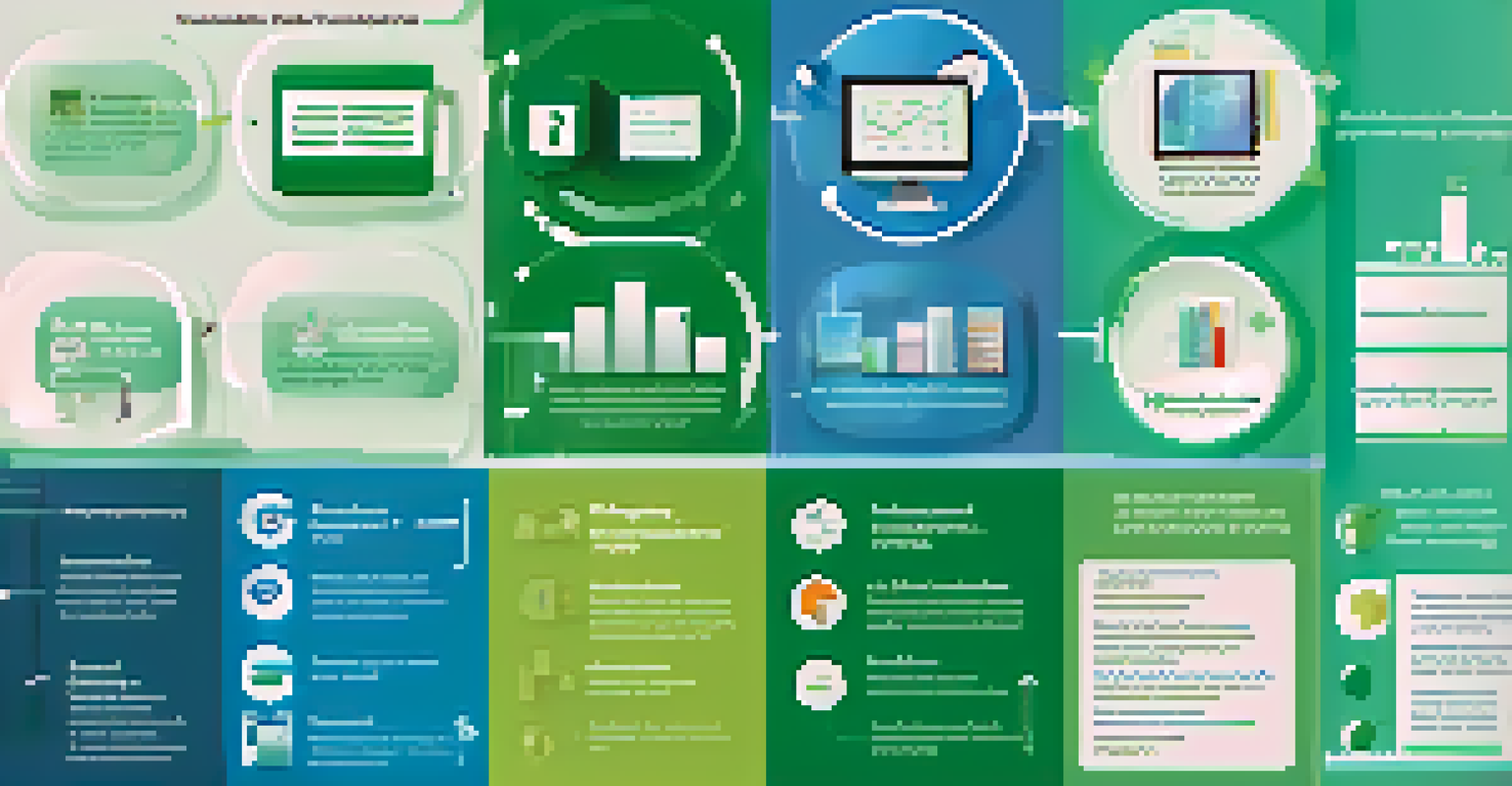Data Literacy: A Key Skill for Today's Job Market

Understanding Data Literacy and Its Importance
Data literacy refers to the ability to read, understand, create, and communicate data. In a world inundated with information, this skill is more crucial than ever. It's not just about crunching numbers; it's about making informed decisions based on data insights.
Without data, you're just another person with an opinion.
In today's job market, employers increasingly seek candidates who can interpret data and use it to solve problems. This demand spans across industries, from healthcare to marketing, making data literacy a versatile asset. Essentially, being data literate means you can navigate the complexities of modern work environments with confidence.
As we move towards a more data-driven future, having a strong foundation in data literacy can set you apart in your career. It's a skill that enhances your adaptability and relevance, allowing you to thrive in various roles. Whether you're in tech, finance, or education, understanding data is key to unlocking new opportunities.
The Role of Data Literacy in Job Applications
When applying for jobs, showcasing your data literacy can give you a significant edge. Many employers actively look for candidates who can demonstrate analytical skills and the ability to use data tools. This means that even if your role isn’t directly related to data, highlighting your literacy can make a difference.

For instance, if you’re applying for a marketing position, being able to analyze customer data trends can show your potential impact on business strategies. Similarly, in project management, understanding data metrics can help you track progress and optimize team performance. These examples highlight how data literacy can enhance your candidacy.
Data Literacy Enhances Career Prospects
Possessing data literacy skills can significantly boost your employability and adaptability across various industries.
Moreover, including specific examples of data projects or tools you've used in your resume can further emphasize your capabilities. Think of it as storytelling – you're not just listing skills; you're illustrating how you've applied them to achieve results. This approach can resonate well with hiring managers.
Building Your Data Literacy Skills
Improving your data literacy doesn’t have to be daunting; it can be both enjoyable and rewarding. Start by familiarizing yourself with basic data concepts such as statistics and data visualization. There are numerous online courses and resources that cater to beginners, making it easy to get started.
In God we trust; all others bring data.
Another practical way to build your skills is through hands-on experience. Try working with data sets available online, or even analyze data from your personal projects. Engaging in real-world applications will reinforce your learning and deepen your understanding of data principles.
Lastly, don't underestimate the power of community. Join forums, attend workshops, or participate in data-related meetups. Surrounding yourself with like-minded individuals can inspire you and provide invaluable insights. Remember, every expert was once a beginner!
Data Literacy Across Different Industries
Data literacy isn't confined to tech-heavy industries; it's valuable in virtually every field. For example, healthcare professionals utilize data to improve patient outcomes, while educators analyze student performance to tailor their teaching methods. Each sector presents unique opportunities to harness data effectively.
In finance, data literacy helps analysts interpret market trends and make sound investment decisions. Meanwhile, in retail, understanding consumer behavior through data can drive sales strategies and inventory management. This illustrates how versatile data literacy can be across career paths.
Data-Driven Decisions Improve Outcomes
Understanding data enables organizations to make informed choices, leading to better strategies and enhanced performance.
As industries evolve, the demand for data-savvy professionals will only increase. By embracing data literacy, you position yourself as a forward-thinking candidate who can contribute meaningfully to your organization. This adaptability is a key advantage in today's dynamic job market.
The Impact of Data Literacy on Decision-Making
Data literacy directly influences decision-making processes within organizations. When employees can interpret data, they can make informed choices that align with business goals. This leads to more effective strategies and better outcomes.
For example, a sales team equipped with data insights can refine their targeting strategies, resulting in higher conversion rates. Similarly, a product development team that understands customer feedback data can create offerings that truly resonate with their audience. These scenarios highlight the tangible benefits of data-driven decision-making.
Ultimately, data literacy fosters a culture of transparency and accountability. When everyone in an organization understands the data, it encourages collaboration and collective problem-solving. This culture not only improves performance but also enhances employee engagement and satisfaction.
Overcoming Challenges in Data Literacy
Despite its importance, many individuals face challenges when it comes to data literacy. Common hurdles include fear of technology, overwhelming data sets, and a lack of training resources. However, acknowledging these obstacles is the first step toward overcoming them.
To combat the fear of technology, start small. Familiarize yourself with basic tools and gradually progress to more complex software. This approach will boost your confidence and make the learning process less intimidating. Remember, everyone learns at their own pace.
Future Demand for Data Skills Grows
As technology evolves, the need for data-literate professionals will increase, making this skill essential for career advancement.
Additionally, seeking mentorship or guidance from experienced colleagues can provide support and encouragement. Engaging in peer learning can also make the experience more enjoyable. By tackling these challenges together, you'll not only enhance your skills but also build a supportive network.
The Future of Data Literacy in the Job Market
As we look to the future, data literacy is poised to become even more integral to the job market. With the rise of artificial intelligence and machine learning, understanding data will be crucial for navigating these technologies. Professionals who can work alongside these advancements will be highly sought after.
Furthermore, as organizations continue to prioritize data-driven strategies, the demand for data-literate employees will only grow. Companies will increasingly invest in training programs to ensure their teams are equipped with the necessary skills. This creates a continuous cycle of learning and growth, benefiting both employees and employers.

In conclusion, embracing data literacy today not only prepares you for immediate job opportunities but also positions you well for future advancements. By investing in this essential skill, you're paving the way for a successful and fulfilling career in an ever-evolving landscape.